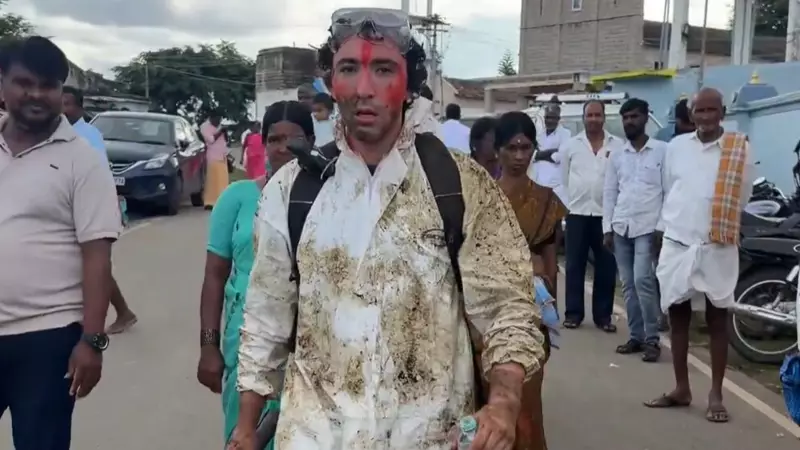
American content creator Tyler Oliveira finds himself at the center of a brewing storm after his recent video documenting a unique tradition in a Karnataka village drew widespread criticism for its perceived negative portrayal of Indian culture.
The Controversial Video That Sparked Outrage
Oliveira, known for his travel and cultural documentation content, visited a village in Karnataka where he filmed the local 'cow dung throwing' tradition during the Gowri festival. The video, which quickly went viral, shows villagers engaging in what appears to be a playful yet intense dung-throwing battle.
However, the presentation and framing of the content has drawn sharp criticism from viewers and cultural commentators alike. Many accuse the YouTuber of presenting the tradition in a 'primitive' light without adequate cultural context or respect for local customs.
Cultural Context vs. Sensationalism
Local residents and cultural experts have come forward to explain the significance behind the tradition. The cow dung throwing is part of a centuries-old ritual believed to bring good health, prosperity, and protection from diseases. In Hindu tradition, cow dung is considered pure and is often used in religious ceremonies and rural households.
Critics argue that Oliveira's video focused excessively on the 'shock value' of the practice while largely ignoring its cultural and spiritual significance. The background music and editing choices further contributed to what many called a 'misleading representation' of the community.
Social Media Erupts in Protest
The backlash has been particularly strong on platforms like Twitter and Instagram, where users have called out the YouTuber for cultural insensitivity. Many Indian viewers expressed disappointment at what they perceive as another instance of Western creators exploiting Indian traditions for content without proper understanding or respect.
One Twitter user commented, "This is exactly why cultural context matters. What might look 'bizarre' to outsiders has deep meaning for the community. This is their faith, not your content fodder."
The Bigger Picture: Cultural Documentation Ethics
This incident raises important questions about the responsibilities of content creators when documenting cultural practices, especially those that might seem unusual to international audiences. The line between cultural documentation and sensationalism has become increasingly blurred in the age of viral content.
Cultural anthropologists emphasize the importance of:
- Seeking proper context and understanding before filming
- Collaborating with local experts and community members
- Avoiding sensational editing that misrepresents traditions
- Respecting the spiritual significance of cultural practices
As the debate continues, this incident serves as a reminder that in our interconnected digital world, cultural sensitivity and responsible storytelling matter more than ever.





